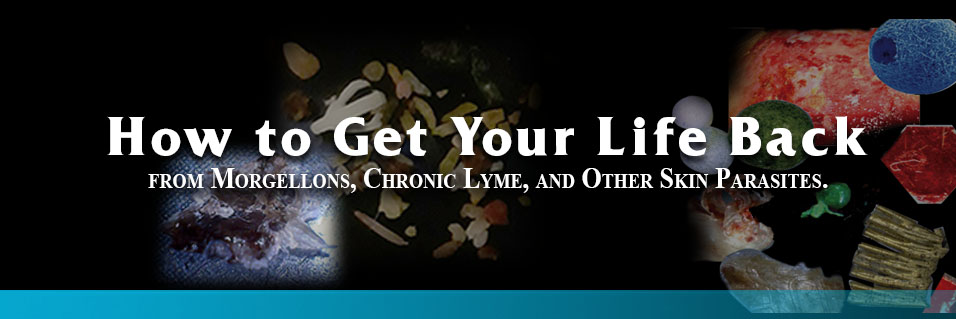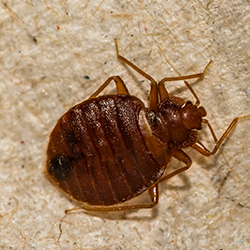

|
 |
Bed Bugs and Morgellons Disease 5/2/2021 |
Bed bugs can be a carrier or vector for skin parasites. Bed bugs can be challenging or easy to get rid of. One standard pesticide treatment by exterminators requires that the bed bugs keep feeding on you, and as they go back to their abode, their heavy bodies drag on the floor picking up the insecticide and then die. But that doesn't help you because they are still infecting you with Collembola, Morgellons, and who knows what else. This is what you do to get rid of them: 1. Put a container - cut off an inch of the bottom of a cottage cheese container - under each leg of your bed and put diatomaceous earth in the container. Any bed bugs trying to visit you must cross this moat of diatomaceous earth which will cut them to shreds before they can get to the bed posts. 2. Check your pillows and your mattress and box springs. If you see the tell tale signs of dirty black bed bug poop, you'll need to order a zippered vinyl bed bug cover for each the mattress and box spring. This means that if they are in the mattress, they will be forever sealed inside where they will die within a year. You can place some menthol crystals inside the cover or nuvan strips. It also means that no bed bug will ever get into your mattress or box spring ever again. Within months all the bed bugs in your surroundings will have succumbed to the moat, but remember some can go for almost a year without feeding. Obviously, launder all your bedding with either bleach or ammonia as a disinfectant. Putting clothing in a dryer also kills them and their eggs. Use our NG laundry soap to avoid skin sensitivities to chemicals like SLS.
If, however, you live in an apartment and they are visiting you from another apartment, you might spray diatomaceous earth into the electric boxes in the wall and spread around any cracks between the wall and floor. Obviously be careful not to electrocute yourself when dealing with receptacles and switch boxes. And don't get the diatomaceous earth into the receptacle itself.
One other consideration: Bed bugs climb walls. One subscriber pointed out that they can actually climb the bedroom wall, crawl along the ceiling and drop onto you as you sleep. You can actually spray diatomaceous earth. Using a funnel, put about 3 or 4 tablespoons of DE in a 32 oz spray bottle. Fill with water and shake well. You can spray the water DE mixture. But remember, you can't see the DE until the water dries from the surface so avoid over spraying. Bed bugs can migrate to other rooms in your home. Read, Essential oils restore insecticide effectiveness against bed bugs |

|